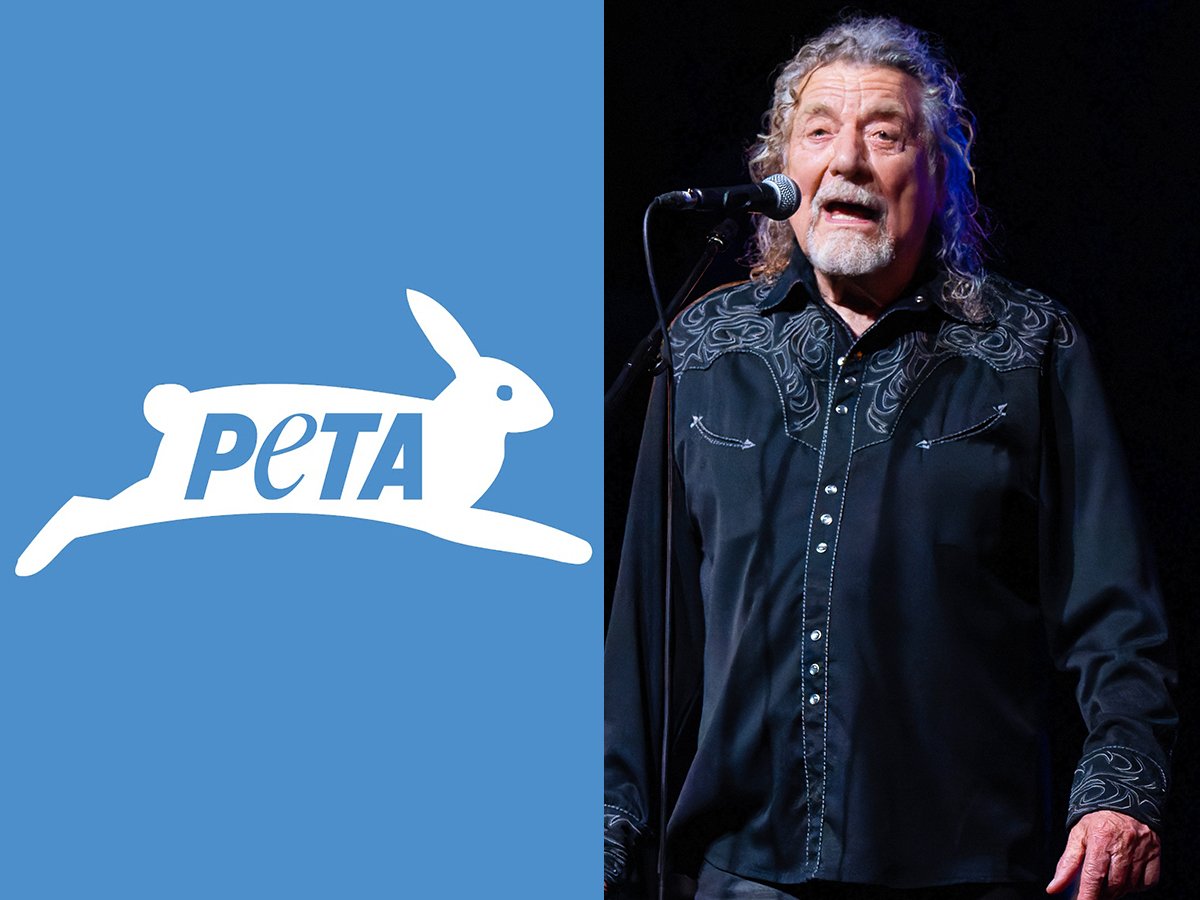In a public letter dated 21 October 2025, PETA UK addressed Robert Plant directly. They wrote:
“With Plant Wool Month—celebrating natural, plant-derived, and animal-free yarns—starting 1 November, we wanted to share a quirky idea … Will you change your name to ‘Robert Plant Wool’ for the month?”
Why make such a request? PETA’s Vice President of Programmes, Elisa Allen, explained that the campaign:
Celebrates animal-free and plastic-free yarns that are more environmentally sustainable.
Highlights the idea that nothing compares to soft, natural and eco-friendly plant wool.
Aims to draw attention to the choice consumers have: do they pick traditional wool (sheep-based) or alternatives grown from plants?
PETA argues that while wool from sheep has been a long staple in textile manufacturing, it comes with animal welfare issues and environmental concerns—including methane emissions from sheep, land use for grazing, chemical treatments, and more.
In contrast, they say “plant wools” — made from hemp, cotton waste, orange waste, nettles, soy fibre, linen etc — are cruelty-free, plastic-free and kinder to the planet.
Why target Robert Plant?
There are a few strategic reasons:
Recognition and media attention: Robert Plant is a household name (frontman of Led Zeppelin). A request for name-tweaking is quirky enough to generate headlines and conversations.
Environmental and animal-welfare credibility: Plant has a track record of caring about environment/heritage (though not necessarily about textiles), so it adds a layer of authenticity to the ask.
Symbolism: The pun on his surname “Plant” connects neatly with “plant-based wool”. It’s clever marketing at the intersection of music, culture and sustainability.
What is “Plant Wool Month”?
According to PETA:
It begins 1 November and is dedicated to celebrating plant-based yarns and fibres.
It highlights designers, textile makers, and crop farmers who are innovating in this space: growing, spinning and creating garments from plant fibres.
The hope is to encourage consumers to choose 100% animal- and plastic-free fibres to keep warm, without relying on sheep’s
They emphasise that animals in the wool industry often suffer: tail-docking of sheep, harsh treatment in shearing sheds, chemical processing, and environmental damage resulting from the industry.
They contrast this with plant-based alternatives which avoid those issues and can have lower ecological footprints. For example, PETA cites assessments where sheep’s wool is ranked “Class E” (worst category) in a fibre benchmark system, whereas hemp is “Class A” (best) according to the same benchmark.
Broader significance: Sustainable fashion + animal rights
This campaign taps into several broader trends:
Sustainable fashion: The textile and apparel industry is under increasing scrutiny for its environmental impact (water use, chemicals, land use, carbon/methane emissions). Wool isn’t exempt.
Animal welfare in clothing: Beyond fur/leather, wool (and cashmere) are sometimes overlooked areas in the animal-rights space. PETA is putting a spotlight on them.
Consumer awareness: By using a catchy name-change request, PETA hopes to spark conversation—getting people to ask: “What is plant wool? What are the alternatives? Should I care?”
Innovation in materials: The push for plant-based yarns highlights how textiles can evolve: from traditional animal fibres to novel fibre technologies from crops, agricultural waste, etc.
Reception and commentary
Media outlets like Far Out Magazine and NME covered the story when PETA made the announcement.
On Reddit, commentary ranged widely: some saw it as a clever campaign, others thought it was gimmicky.
Reddit
The reaction illustrates a tension: while the goal is laudable (less harm, more sustainability), the method (asking a rock star to change his name temporarily) raises questions about effectiveness vs gimmick. Some users on Reddit questioned whether shearing sheep is always cruel, or whether plant wool can fully replace animal wool in every application.
Reddit
What happens next?
It’s not yet clear whether Robert Plant will agree to the name tweak. PETA has asked but no public confirmation (at least as of this writing).
If he does participate, the campaign may gain more traction: perhaps social media posts, interviews or announcements around November.
Regardless, the month of November will serve as a promotional window for plant-based yarns: expect articles, designer collaborations, textile launches, awareness efforts around sustainable fibres.
For consumers: this is an invitation to explore alternatives — if you’re buying wool-like garments, consider whether the fibre is sheep wool, cashmere, or a plant-derived option.
Why you may want to care
If you’re concerned about animal welfare: This campaign points out that even common animal-based fibres like wool involve animals and can involve harm.
If you’re interested in environmental impact: Land use for grazing, methane from ruminants, chemical processing—all these matter in the broader climate equation.
If you’re into fashion/texture: Plant-based yarns are increasingly high quality. They may offer performance, texture and warmth comparable to animal wool — for those curious about alternatives.
If you’re looking for conversation starters: Whether you love music, sustainability or pop culture, the idea of Robert Plant becoming “Robert Plant Wool” is quirky enough to get people talking—and that might be the point.
Final thoughts
While the proposal may seem light-hearted, it underscores serious issues: how we clothe ourselves matters—to animals, to the planet, to future fashion. By combining a globally recognised rock star with a sustainability push, PETA is leveraging pop culture to advance its message. Whether you’re a fan of Robert Plant, wool (or plant wool), or simply curious about ethical textiles—you’ll find this campaign worth watching.
At the end of the day: the question isn’t just “Will Robert Plant change his name?” but “Will we change our thinking about what we wear?”

